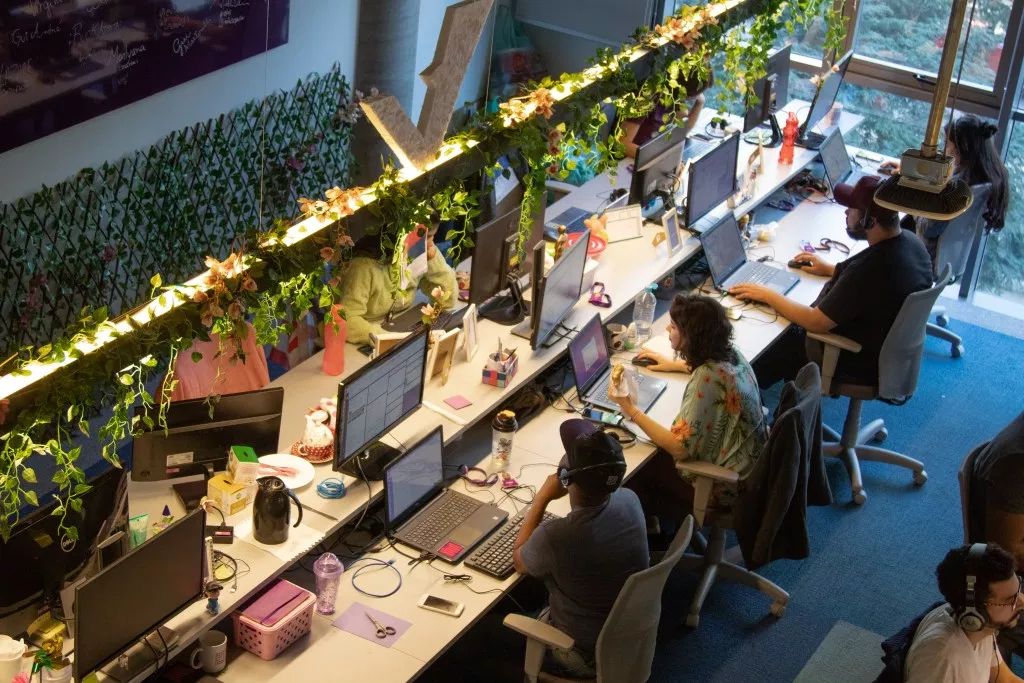
When reading a news story about the job market or looking for a job vacancy, you may have read the word startup. We often read as if it were a “company” and let its real meaning pass.
But what does that term really mean? Keep reading to learn what they are, how they work and what are the differentiators of startups.
Startup: understanding the concept
A definition of a startup is still not completely clear to everyone. Many consider that startups are just companies in the initial phase, which are starting in the market.
However, there are several factors that can define a company as a startup, even if it has 3 or 5 years in the market. The first is the ideal behind: this type of enterprise does not seek to reproduce something that already exists but to find a new solution to the customer’s problems. Often, a startup’s first challenge is to prove the potential of its solutions.
Often, they also depend on investor funding, having to make presentations or prototypes to prove that their idea can work. In other words, it is a risky venture, usually opened by people who believe in their ideas and want to invest time and money in them.
The scenario of startups in Brazil
According to a survey by the Brazilian Startup Association, there are 6,000 startups in Brazil at the moment. Considering the initiatives that do not yet have a CNPJ, this number grows to 10,000.
According to StartupBase, 50% of these ventures are aimed at the B2B market and 72% are led by people between 25 or 40 years old – Brazilian startups are generally youth ventures. The most common segments for this area are education, finance, communication, health, tourism, agribusiness, entertainment, online commerce and urban mobility. And the number of startups in Brazil has been growing at least 20% per year.

Differences between startups and conventional companies
When we simplify, we can say that startups are a type of company. But what differentiates, then, a startup from a conventional company? Firstly, innovation: startups do not seek to reproduce an old model, but rather to generate something new, taking an innovative look at common problems, so many people associate this type of company with technology, although this is not necessarily true.
In addition, startups are rapidly growing enterprises. Scalability is an important feature: the more the product or service offered can expand and be offered to more customers, the better. Flexibility is also a key feature. Unlike conventional companies, with a specific objective that, if not achieved, can end all company plans, startups seek changes, changing plans according to demands.
The organizational culture of the startup also differs from conventional: employees tend to have more freedom of time and dress code and can give ideas and opinions more easily, worrying about the company as if they were the owners. Hierarchical positions are not as fixed as in a conventional company.
But don’t think that startups are completely different from conventional companies: like any organization, a startup depends on investment, planning, marketing, market knowledge and a lot of persistence to persevere in the market.
Types of startup

Briefly, startups can be divided into seven groups.
1. Small business
Created by small entrepreneurs, with their own savings, they do not have many growth ambitions.
2. Scalable
A small company that wants to attract investors’ attention and expand rapidly.
3. Big business
Even though established, these startups continue to think about innovation and development to remain attractive to investors who can leverage their operations.
4. Lifestyle
Generated from ideas that emerged from the owner’s problems and lifestyle.
5. For sale
These are businesses that were born with the intention of being sold to larger companies, drawing the attention of investors.
6. Social
Profit is in the background, as these startups aim to meet a consumer need or untapped opportunity that can change society and help us live in a better world.
7. Unicorns
Unicorn startups are those that are worth more than 1 billion dollars. Two examples are the national 99 and Nubank and the American Uber and Airbnb. The name comes from the fact that it happens very rarely as if it were a legend.

Investment in startups
Finally, it is worth explaining how investments in this type of company work. Many startups talk directly with investors to discuss their solutions, but there are two common models used to grow these businesses:
1. Incubators
Incubators are usually related to universities and may have public or private investments, depending on the institution. It is a common model for anyone looking to start a company during undergraduate or graduate studies, although it may not be the best option, depending on the type of business.
2. Accelerators
Accelerators not only help, but they also become partners of startups. Many offer, in addition to financial investment, space and contacts for entrepreneurs who are starting and looking for new businesses to invest their capital, the so-called angels.
Many startups start with bank or family loans; others find an investor. The important thing, in any case, is to find someone who believes in the company’s potential and wants to see it grow.



